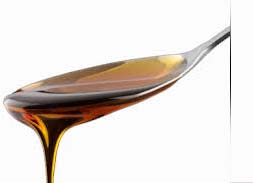Class I –Caustic /spirit Caramel
Class II –Sulphite Caramel
Class III – Ammonia Caramel
Class IV –Ammonia –sulphite Caramel

Caramel color-Redefined……
Caramel Color is a dark brown liquid material derived from controlled heat treatment of fine grade crystal sugar with or without some additive reagent. It is defined and regulated as a food color additive. Internationally the FAO/WHO Joint Expert Committee on Food Additives (JECFA) has divided Caramel Color into four classes depending on the food grade reactants used in its manufacturing:
- E150 a - Class I is Plain Caramel Color
- E150 b - Class II is Caustic Sulfite Process Caramel Color
- E150 c - Class III is Ammonia Process Caramel Color
- E150 d - Class IV is Sulfite Ammonia Process Caramel Color

KUSUM CARAMEL COLOURS SPECIFICATION
- PARTICULARS
- TYPE-I
- TYPE-II
- TYPE-III
- TYPE-IV
- PROCESS
- PLAIN PROCESS
- SULPHITE PROCESS
- AMMONIA PROCESS
- SULPHITE AMMONIA PROCESS
- Plain Caramel, Caustic Caramel, Spirit Caramel.
- Caustic Sulfite Caramel
- Ammonia Caramel, Baker’s Caramel, Confectioner’s Caramel, beer Caramel
- Sulfite Ammonia Caramel, Acid Proof Caramel, Soft Drink Caramel
- Negative Caramel Colour
- (Spirit Soluble, Red Tone, Negative Caramel Colour)
- (Low Sulfite, Positive Caramel Colour)
- (Acid Proof , Negative Caramel Colour)
- APPLICATION
- Carbonated Beverages, Liquors, Sauces, Confectionery, Bakery
- Whiskies, Brandies, Confectionaries, Distillery Industries
- Beer, Malted Foods, Say Sauce, Dairy Products, Protein Drinks
- Carbonated Beverages, Country Liquor, Rums, Sauces, Confectionery, Pharmaceuticals
- EEC No.
- E150a
- E150b
- E150c
- E150d
- DESCRIPTION
- The Kusum Caramel Grade-I is produced by carefully controlled heat treatment of food grade carbohydrates with or without acids, alkalies or salts in the presence of both sulphite and ammonium compounds.
- The kusum sulphite Caramel is produced by a carefully controlled heat treatment of food grade carbohydrates with or without acids, alkalies or salt in the presence of sulphite compounds. No ammonium compounds are used.
- The kusum ammonia Caramel is produced by a carefully controlled heat treatment of food grade carbohydrates with or without acids, alkalies or salts in the presence of ammonium compounds. No sulphite compounds are used.
- The kusum Ammonia-sulphite Caramel is produced by a carefully controlled heat treatment of food grade carbohydrates with or without acids, alkalies or salts in the presence of sulphite & ammonium compounds.
PHYSICAL & CHEMICAL SPECIFICATIONS:
- Colour Intensity Percentage by Mass
- 0.01 - 0.12
- 0.06 - 0.10
- 0.08 - 0.36
- 0.10 - 0.60
- Baume @ 15.5°C
- 39.6 - 40.0
- 37-38
- 34.7 - 36.3
- 28.80 - 29.20
- Specific Gravity @ 20°C
- 1.2468-1.2511
- 1.341-1.354
- 1.315 - 1.3327
- 1.25 - 1.28
- PH "as is "
- 2.7-3.0
- 2.9-3.3
- 4.1-4.8
- 2.8-3.3
- Ionic Character (Colloidal Carge)
- Negative
- Negative
- Positive
- Negative
MICROBIOLOGICAL SPECIFICATION
- Standard Plate Count/g Max
- 200
- 200
- 200
- 200
- Yeast/g Max
- 10
- 10
- 10
- 10
- Mold/g Max.
- 10
- 10
- 10
- 10
- E.coli/g (MPN))
- Less than 3
- Less than 3
- Less than 3
- Less than 3
- Salmonella/25g
- Negative
- Negative
- Negative
- Negative
- PACKAGING
- 65kg/300kg
- 65kg/300kg
- 65kg/300kg
- 65kg/300kg
- STORAGE CONDITIONS:
- Not to be exposed to direct sun light. To be stored in dry environment below 32°C
- Not to be exposed to direct sun light. To be stored in dry environment below 32°C
- Not to be exposed to direct sun light. To be stored in dry environment below 32°C
- Not to be exposed to direct sun light. To be stored in dry environment below 32°C
- SHELF LIFE
- Though shelf life is One year under the above mentioned storage conditions, Good manufacturing practice recommends that product be rotated every year.
- Though shelf life is One year under the above mentioned storage conditions, Good manufacturing practice recommends that product be rotated every year.
- Though shelf life is One year under the above mentioned storage conditions, Good manufacturing practice recommends that product be rotated every year.
- Though shelf life is One year under the above mentioned storage conditions, Good manufacturing practice recommends that product be rotated every year.
Note : we also manufacture products as per customer’s specific requirement
